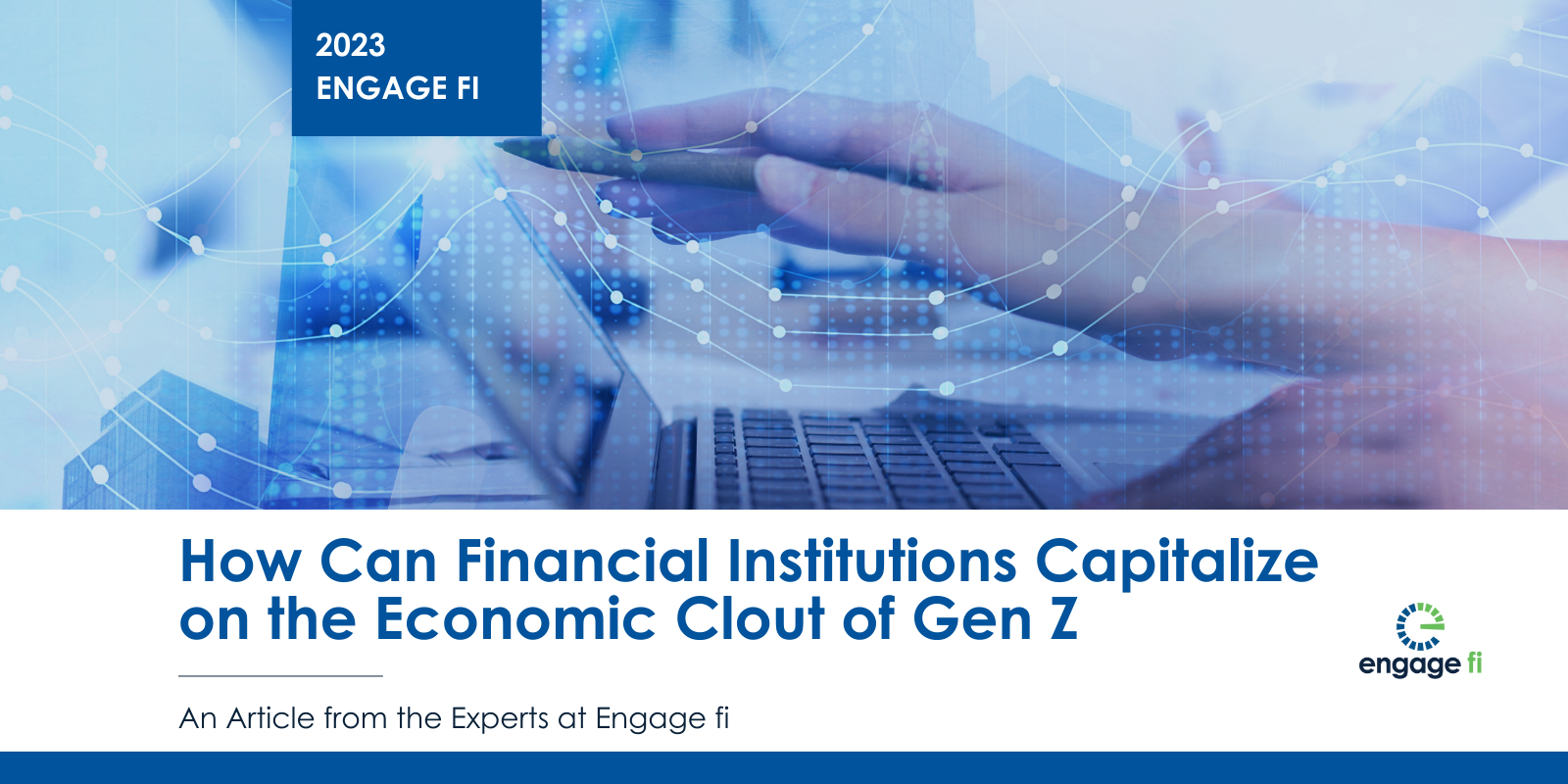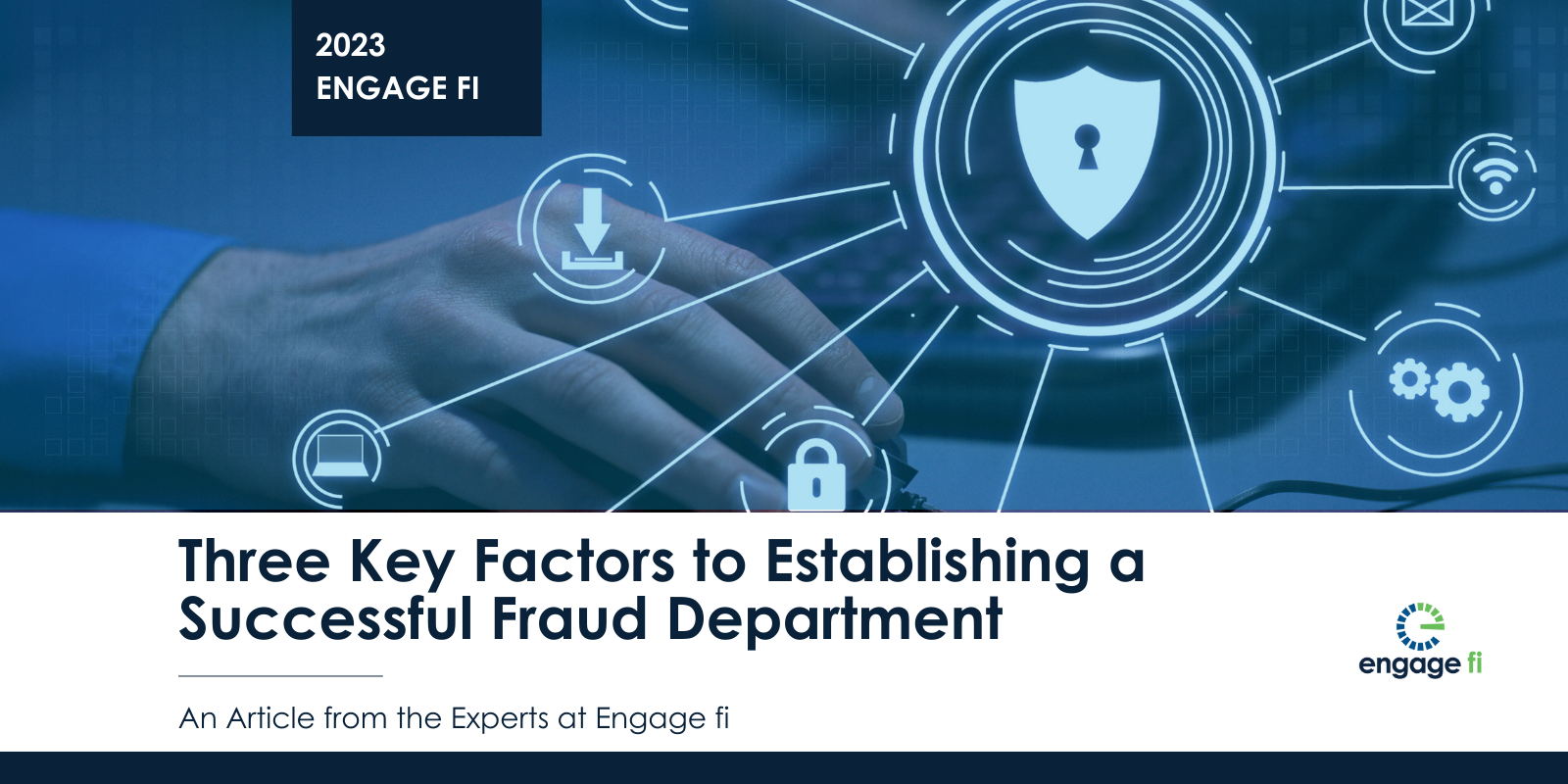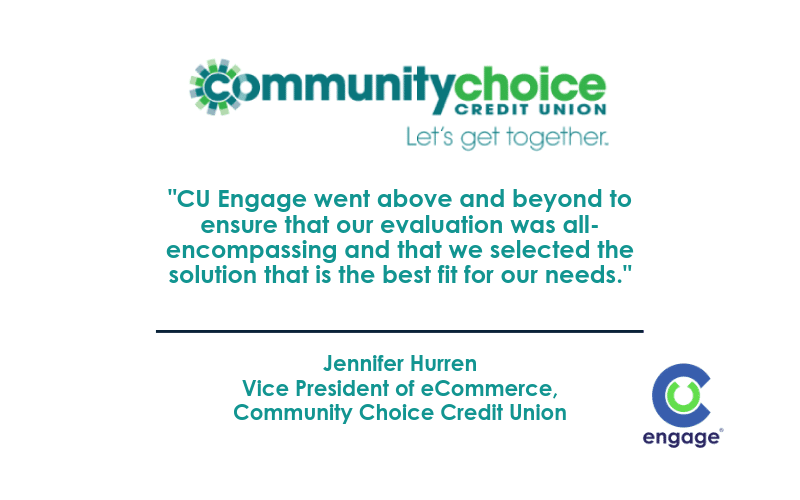Three Key Factors to Establishing a Successful Fraud Department
What is Fraud? Is fraud the wrongful or criminal deception resulting in financial or personal gain? Or is fraud a person/thing intended to deceive...
3 min read
Vikki Wagner : May 11, 2023 2:43:43 PM

Gen Z does not have much interest in traditional banking. They were grandfathered into their families’ brick-and-mortar personal bank, and banking options and alternatives in the past were limited. Not anymore.
This demographic, which includes adults born after 1997 and before 2012, represents billions in buying power and Gen Z is expected to surpass Gen X in the number of digital buyers by 2025. Gen Z was the first generation born into a completely digital world and are extremely tech-savvy. Much of what they have learned about banking has been with the help of popular social media apps such as TikTok, Instagram and YouTube, and Gen Z expects to do most, if not all, of their financial transactions digitally, whether shopping for groceries, buying clothes, or managing their banking needs.
Gen Z has come to expect superior mobile and online experiences inclusive of their banking needs. They don’t want to print anything and don’t necessarily want in-person interaction, but they do want everything to go smoothly and be accessible at their fingertips. Gen Z also has a high level of social consciousness and passion for the causes they support, especially regarding environmental, social, and governance (ESG) principles, which can include cyber, data privacy, and more.
Digital transformation has been a staple of the financial blueprint for years, but is it enough to keep this group engaged? Financial institutions are taking notice, but they need to move more quickly to court this group of individuals successfully.
Gen Z’s priorities may differ from the traditional consumer of past and present. We must acknowledge and catch up with Gen Z’s preferred ways of conducting business or risk losing this segment altogether. Keep their expectations in mind when focusing on growing your customer base:
Security and Trust: The level of trust and security that your institution provides was rated as Gen Z’s top priority by The Financial Brand in 2022. They are less likely than Baby Boomers to trust any financial institution completely. Many financial institutions have gained some trust from the younger generation, but there is work to do. Consider providing advanced identity and credit protection. Then, take it a step further and offer data protection for their digital assets. For Gen Z, any digital apps need to look polished and modern to garner a level of trust.Additionally, this generation wants honesty. If there is a security breach, they expect to be informed immediately and have confidence in how you will address the breach. Any delay with details diminishes trust, and they will look elsewhere for their banking needs.
Ethical and Social Responsibility: Gen Z takes ethical and social responsibility seriously. They are aware of the world around them and want to change how we think about the environment and social justice. Gen Z is intentional about how they spend their money, invest, and participate in the causes they support. They want their choices to ensure the world is better for the next generation.Your financial institution must consider becoming more ethically and socially responsible if you want to market to this group. For example, how does your financial institution choose to lend or invest? Do you have any volunteer programs that support the community? There isn’t one right or wrong answer here, but to reach Gen Z, ESG principles must be part of your growth strategy.
Financial Wellness: Financial literacy has been low within the last few generations, but it’s the lowest among Gen Z, according to a report published by the TIAA Institute and the Global Financial Literacy Excellence (GFEC) Center at the George Washington University School of Business. Gen Z still relies on parents and family for financial information, which may not always be the best approach. There is a significant opportunity to provide services to this group to improve their overall financial stability. Educational support that includes direction on paying for college could keep many from making bad loan decisions and being in unmanageable debt before they even graduate. Student loans can be refinanced; show them how. Investing for the future: what does that look like for Gen Z? Offering an educational series on running a checking account, building credit, saving for future goals, or buying a home will not only build financial wellness, but it will drive Gen Z to your financial institution’s services.
Gen Z is growing up in a world of financial instability, and many rely on social media as their main form of financial information. Financial institutions need to figure out a way to use these social platforms to their advantage to compete with the growing list of alternative online banking platforms to ensure their future value. Providing transparency and reaching out to Gen Z to meet them where it matters most will ensure that your financial institution stays relevant.
To schedule a time to speak with one of our experts about growing your bank or credit union, please call us at (844) 415-7962 or click here to book a call online.

What is Fraud? Is fraud the wrongful or criminal deception resulting in financial or personal gain? Or is fraud a person/thing intended to deceive...

Why did you enlist us for help? Community Choice is a $1B asset credit union headquartered in Michigan with an eye on growth and providing an...
Card loyalty programs are a proven marketing tactic, offering the ability to reward and incentivize customers. Although card loyalty programs are not...